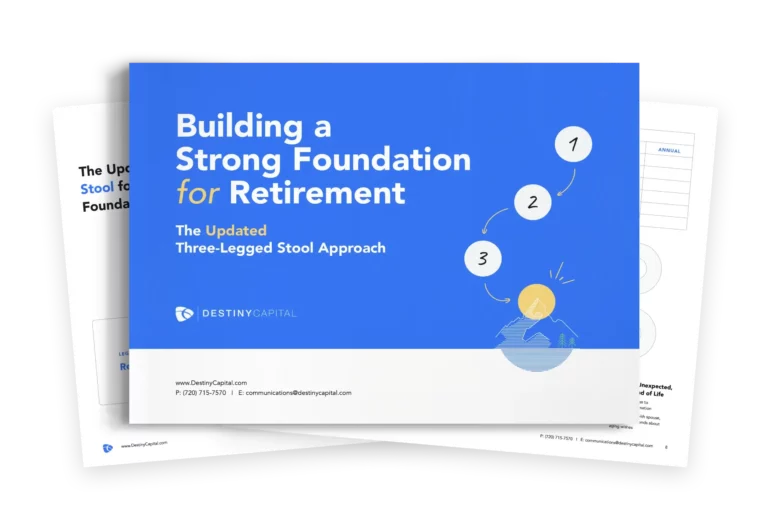Do I Need an Estate Plan?
You may recall hearing the news back in 2016 that one of the biggest pop music stars of our time, Prince, died at the age of 57. Within the industry, he was known for being extremely protective of his songs and critical of the financial structure of the music business. So, it was quite a shock to learn that he left no estate plan behind. As a result, his substantial estate, which was valued at a staggering $156 million and included the rights to his music, was subject to the court’s discretion. Finally, after a long and drawn-out six-year legal battle, a Minnesota district court ultimately divided Prince’s assets between several of his half-siblings and a music publishing company. The high-profile case garnered significant attention and sparked curiosity as to how and why someone of Prince’s status and reputation would overlook protecting such a valuable estate.
But Prince was not alone. Countless individuals fail to properly plan for the eventual administration and division of their estate. It is a common misconception that estate planning is only for the wealthy or elderly. In reality, having a solid estate plan in place is beneficial for almost everyone, and putting in the effort to plan ahead can save your family considerable time, money, and undue stress down the road. A recent study from Caring.com found that two out of three Americans lack any type of estate documents, and the most common reasons people gave included procrastination, not thinking they have enough assets to leave someone, not understanding how to get an estate plan, and cost. Unfortunately, this means that millions of families will likely find out just how difficult it can be to sort out a loved one’s affairs after they are gone. While it may not be pleasant to think about death, passing away without a plan can create much more tension for those closest to you. You may not have the fame, wealth, or complexity of Prince, but if you want a say-so in who inherits your assets once you are gone, who will care for your dependents, and who gets to make decisions for you if you are incapable, it is imperative to get a plan in place.
What happens if you die without the proper estate documents?
Whether you have a will or not, when you die, you will likely leave something behind. This could include real estate, bank accounts, investments, personal property, and many other types of assets. The legal process for identifying assets and distributing them to beneficiaries is known as probate. If you die with a valid will in place, the person you designated as your Personal Representative or Executor is responsible for filing the will with the probate court. The court reviews the will for validity and issues a Letter of Testamentary, which officially authorizes the Personal Representative to manage your final affairs as outlined in the will. This will include things like notifying banks, credit card companies, utilities, and government agencies of your passing, paying any final debts, maintaining your property until it can be sold or transferred to your heirs, and overseeing the distribution of your remaining assets to beneficiaries.
Dying without a will is known as “dying intestate.” In this situation, the court typically appoints an individual to become your Personal Representative, and your probate assets are distributed according to the intestate succession laws of your state. This means that the state you reside in may decide the fate of your money and property, and it can be quite complicated depending on your family situation. For example, under Colorado’s intestate succession laws, the amount a spouse inherits varies depending on whether you have living children or parents. Below is an illustration of some of Colorado’s succession rules:
| If you are survived by: | Who inherits? |
| Spouse but no children | Spouse |
| Children but no spouse | Children |
| Spouse and children from you and your spouse, and neither of you have any other children | Spouse |
| Spouse and children from you and your spouse, and your spouse has children from another relationship | Spouse inherits the first $225K of your property, plus one-half of the balance. Your children inherit your remaining property. |
| Spouse and your children from another relationship | Spouse inherits the first $150K of your property, plus one-half of the balance. Your children inherit your remaining property. |
| Spouse and parents | Spouse inherits the first $300K of your property, plus three-fourths of the balance. Your parents inherit your remaining property. |
| Parents but no spouse or children | Parents |
| Siblings but no spouse, children, or parents | Siblings |
As you might imagine, simply relying on these rules could result in an unintended distribution of your property. Many make the mistake of assuming that a family member or friend will just divide their property upon death but fail to realize it is not that simple. Even if you have a small estate, there are formal processes and paperwork required.
It is important to note here that intestate succession does not apply to the transfer of all assets. Property held in trust, life insurance policies with named beneficiaries, and retirement accounts or other assets with named beneficiaries pass outside probate.
If you have minor children, one of the biggest risks of not having an estate plan is that you have no control over who will become guardian of your children if you die. Without a will that clearly designates guardianship, the court typically appoints the surviving parent, but there are numerous situations where this does not happen. So, it is crucial that you think seriously about who you would want to care for your children and formally declare your wishes in the appropriate legal documents.
What happens if you become incapacitated without the proper estate documents?
Failing to plan for the administration of your estate and distribution of your assets upon death is not the only aim of estate planning. Without Powers of Attorney and Medical Directives in place, no one will automatically be able to make financial or medical decisions on your behalf if you become unable to make them yourself. Some people believe that if they are married, their spouse will be able to make all decisions if they cannot. Others assume because they are relatively young (although no longer minors), their parents could make major decisions on their behalf. However, this is not necessarily the case. If you become incapacitated without the proper documents, a court may designate a guardian to make decisions for you, but the process can be time-consuming and expensive.
What are the components of an estate plan?
A comprehensive estate plan typically includes several important pieces. This may include wills, trusts, powers of attorney, medical directives, and other documents depending on your unique situation.
Wills
The most basic part of an estate plan is a will. Even if you know very little about estate planning, you likely know the basics of a will. In its simplest form, it can be used to direct how your property is divided upon your death, and who will oversee your final affairs. Your Personal Representative will be responsible for notifying banks, credit card companies, utilities, and government agencies of your passing, pays any final debts, maintains your property until it can be sold or transferred to your heirs, and overseeing the distribution of your remaining assets to beneficiaries. This could be a big job so it is important to select a person that can handle the responsibility, rather than leaving that decision to the court.
If you have minor children, this is also where you nominate a guardian to care for them if you die. Within the document, you can specify how your final expenses and taxes are to be paid and include details about your burial. Outlining all of this ahead of time helps to make sure your wishes are met and avoid family disputes.
Trusts
Trusts are used for several reasons, including protecting assets for beneficiaries, controlling how and when your assets are distributed, minimizing estate taxes, and helping to avoid probate. Trusts can be created separately during your lifetime or language can be included in a will so that trusts are created upon your death (also known as a Testamentary Trust).
Powers of Attorney
It is important to think about how your affairs would be taken care of if you were still living but unable to manage them yourself. With a Power of Attorney (or POA), you can name individuals to legally make decisions on your behalf. A financial POA allows you to designate someone as your agent to make financial decisions for you. The POA can become effective when you sign the document, giving them permission to act immediately, or you can specify that it only becomes active upon your incapacity. You can also limit their powers to specific financial matters or time periods.
With a health care/medical power of attorney, you can name individuals to make health-related decisions for you if you are unable to make those decisions on your own. As such, these documents typically only become effective if you are officially declared incapacitated or incompetent by a medical professional, and they stay in effect until you pass away, or you are able to competently revoke the document.
Medical Directives
Also known as an Advance Directive or Living Will, this document outlines your wishes regarding life-sustaining or end-of-life medical care. The key benefit of this document is that it keeps your family members from having to make such tough decisions at an already traumatic time.
Account & Life Insurance Beneficiaries
People often make the mistake of not ensuring beneficiaries are up to date for financial assets such as IRAs, employer-sponsored retirement plans, and life insurance policies. As mentioned previously, one of the major benefits of naming beneficiaries is that it allows such assets to avoid the probate process. This enables you to pass property to your beneficiaries more efficiently and it can reduce the time and cost of settling your probate estate. Furthermore, in addition to life insurance policies and retirement accounts, you can add beneficiaries to bank accounts, investment accounts, homes, cars, and many other assets.
How can we help?
In our decades of experience, we have seen numerous families benefit from proactive and collaborative estate planning, and we appreciate the opportunity to walk with clients as they navigate this area of their financial lives. As part of our ongoing financial planning service, we periodically review estate plans to ensure they are still in alignment with clients’ wishes, and we do occasionally identify items that clients choose to update due to changes in family circumstances, financial condition, state of residency, or state and federal laws.
If you have not shared your most recent estate documents with us, we would appreciate receiving copies to review and keep on file. If you lack the proper documents, wish to make changes, or just want to confirm that your estate plan still meets your goals, we invite you to contact us. Our team is happy to meet with you to review your plan, and we can help connect you with a trusted estate planning attorney if needed. In all our work, our overarching goal is to help families as they pursue truly remarkable lives, and this includes leaving a lasting legacy. Please let us know how we can help.
Sources:
Disclaimer: Destiny Capital does not offer legal or tax advice. The information provided on this website does not, and is not intended to, constitute advice; instead, all information, content, and materials available on this site are for general informational purposes only. Information on this website may not constitute the most up-to-date tax or other information. Please consult with your attorney, accountant, and/or tax advisor for advice concerning your particular circumstances. Advisory services provided by Destiny Capital Corporation, a Registered Investment Adviser.
Share this
Stay Ahead with Smart Investments
Learn how to invest wisely and minimize risks to protect your retirement savings.
Achieve Your Retirement Goals
Get personalized advice to meet your retirement goals. Book your call with Destiny Capital now.




